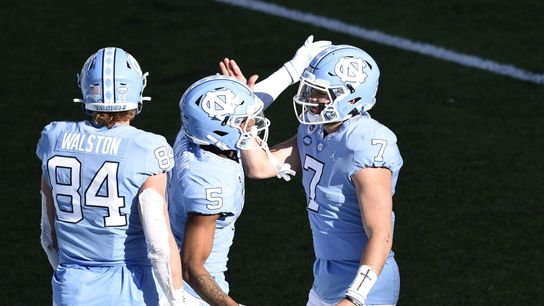In February, EA Sports announced it will revive its beloved college football video game, with a couple caveats. The game would return under a different name and (more importantly to consumers) without the likenesses of actual players. USC RB #5 wouldn't be a player with a striking resemblance to Reggie Bush, for example, he'd just be a USC running back wearing the number five.
The reason for this was the same reason the video game died in the first place: red tape.
-- EA Sports can't revive the video game without compensating players for their NIL.
-- It would be impossible to negotiate a separate deal with each player. A group licensing apparatus would have to be established.
-- Many within college sports believe that would only be possible through a union, which isn't happening for a number of reasons. At least one federal bill would have a group licensing provision built in, but it's anyone guess as to whether that ever becomes law and if so, when.
Given all that, we'd have to resign ourselves to a video game that was maybe only 50 percent of the real thing, if that.
"We're as much passengers as anyone else," EA Sports vice president Daryl Holt said back in February.
But on Tuesday, North Carolina provided a step forward.
Rather than wait for Congress, or the NCAA, or a group consisting of the Easter Bunny and the Tooth Fairy to act, UNC partnered with the Brandr Group to launch their own group licensing apparatus for Tar Heels athletes.
"This is an outstanding opportunity because it will allow our student-athletes to benefit, together, with our trademarks and logos – and to have more choices and chances to collectively benefit from their NIL," UNC AD Bubba Cunningham said. "I have long supported the group licensing concept because it can positively impact so many student-athletes. I'm proud that Carolina is the first program to support college athletes, past and present, through group licensing."
Beyond providing a glimmer of hope to the return of a realistic video game, this will provide real-time benefit to Tar Heel athletes. Rather than go to his local Dick's Sporting Goods and purchasing a generic baby blue practice jersey and say, "Hi, I'm local football player Sam Howell," the aforementioned Tar Heels quarterback can grab his offensive line and, with a UNC logo appearing in the chyron, appear in a local rib joint's commercial as Tar Heel athletes.
For decades, products that combine team logos and player names and numbers have accounted for a large portion of licensed sports merchandise sales at the professional level. This innovative project opens the door for the same opportunities for current student-athletes at the collegiate level. Through this new approach, Carolina fans can own merchandise and other products featuring their school's logo and the names and numbers of their favorite Tar Heels.
In addition to putting money in their players' pockets, UNC is also cutting into one of the common fears of the NIL era, that one player would profit while the remainder of the locker room's pockets remained empty and their hearts grew jealous. This program will allow three or more Heels of the same sport or six or more across multiple sports to appear in "cobranded licensing and marketing programs with UNC's Intellectual Property."
Clearly, the Brandr Group views this arrangement with UNC as a launching point to a similar arrangement with every school in the country.
"We are incredibly excited to be able to bring these new, previously untapped opportunities to current UNC student-athletes through this historic program," said TBG founder and president Wesley Haynes. "Our company was founded on the development of group licensing programs for the college market. To now represent the lifecycle of athletes from college to professionals to alumni puts us in a position to maximize opportunities for many of these athletes on a group basis."
Time will tell if this provides a path to the return of a realistic video game, but Carolina athletes will benefit in the meantime either way.
